
Find A Professional
More Items From Ergsy search
-
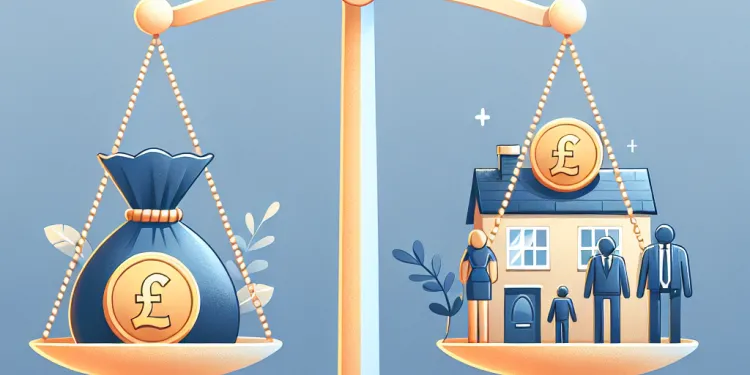
Do unpaid tax debts affect Inheritance Tax calculations?
Relevance: 100%
-
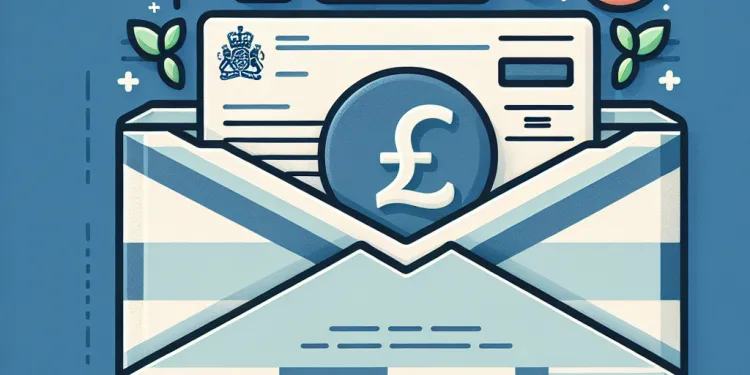
Is the tax refund amount taxable?
Relevance: 96%
-

Would a wealth tax replace other taxes in the UK?
Relevance: 88%
-
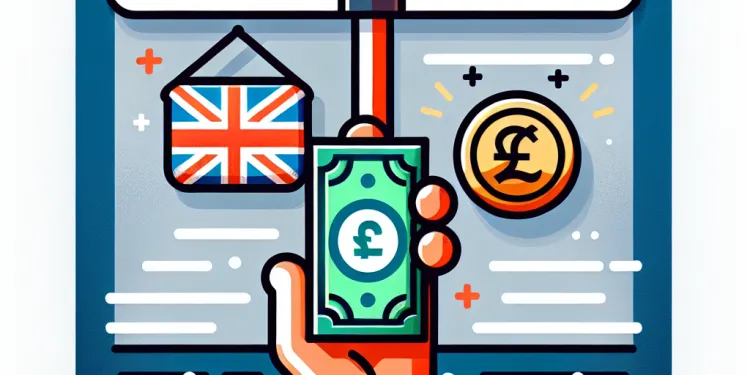
How does a wealth tax differ from an income tax?
Relevance: 87%
-

Can my tax refund be applied to my future tax obligations?
Relevance: 85%
-

What is the wealth tax in the UK?
Relevance: 82%
-

How does inheritance tax affect non-UK domiciled individuals?
Relevance: 81%
-

Does owning property abroad affect UK inheritance tax?
Relevance: 81%
-

What is inheritance tax in the UK?
Relevance: 80%
-

Could a wealth tax encourage tax avoidance?
Relevance: 79%
-

How is the tax refund amount calculated?
Relevance: 79%
-
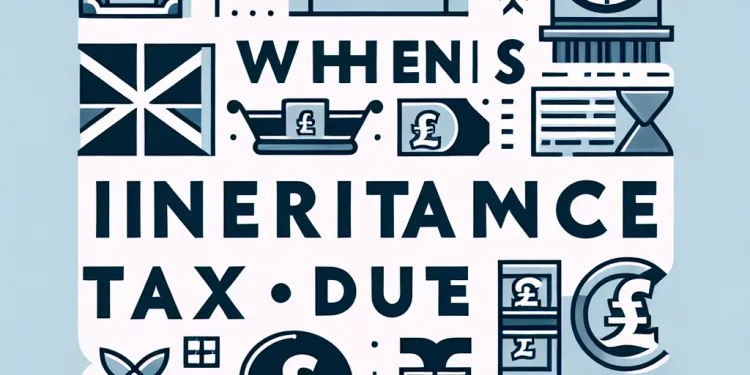
When is inheritance tax due to be paid?
Relevance: 77%
-

What Happens to Tax Debt After Death? (UK Laws)
Relevance: 75%
-

Can an inheritance tax bill be challenged or appealed?
Relevance: 73%
-

Higher Income Tax - How to Claim Pension Tax Relief | Extra 20% Boost
Relevance: 73%
-

What is the Wealth Tax in the UK?
Relevance: 72%
-

Can a wealth tax be levied annually?
Relevance: 72%
-

How can I plan efficiently to mitigate inheritance tax?
Relevance: 70%
-

How might these changes affect taxpayers on PAYE?
Relevance: 70%
-

How will dividend taxation change in April 2026?
Relevance: 70%
-

Where can I find more detailed information on inheritance tax?
Relevance: 69%
-

What is the role of an executor in handling tax debts?
Relevance: 69%
-
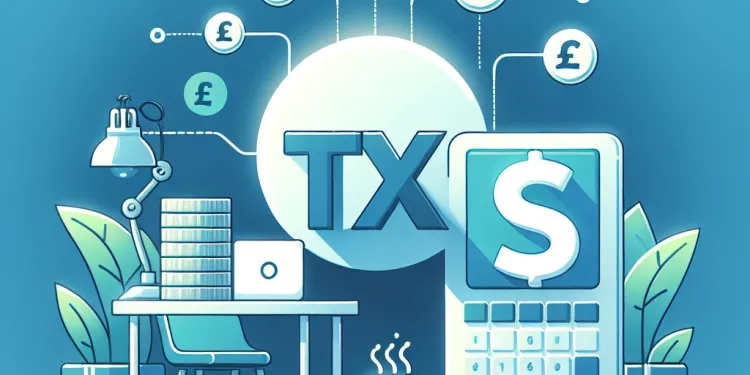
HMRC Tax Refund letters
Relevance: 69%
-

How is a wealth tax typically calculated?
Relevance: 69%
-

Are there any countries currently implementing a wealth tax?
Relevance: 68%
-
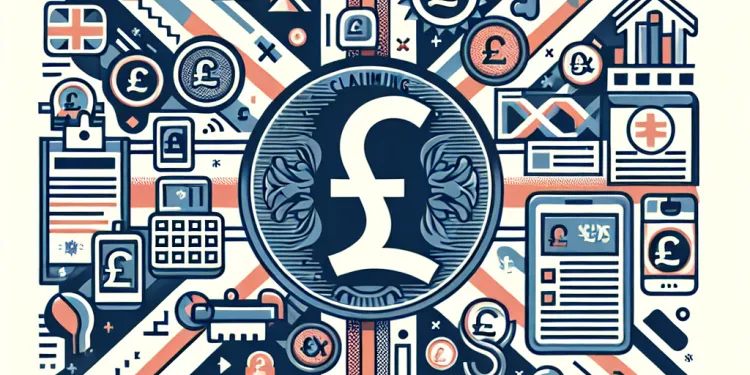
How do I claim my tax refund from HMRC?
Relevance: 68%
-
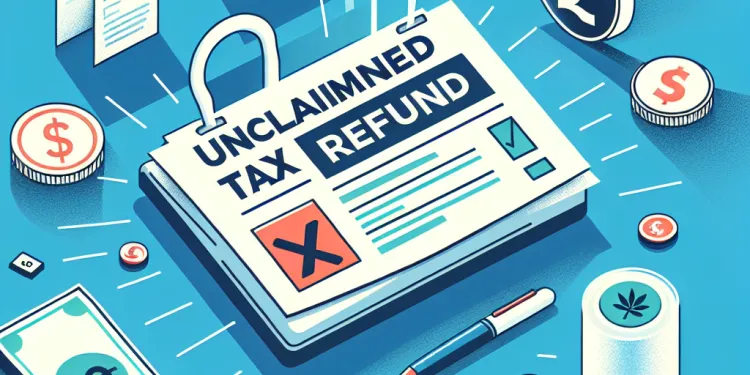
What happens if I do not claim my tax refund?
Relevance: 67%
-

Are firefighter pension benefits taxable?
Relevance: 66%
-

Is there any inheritance tax exemption for spouses or civil partners?
Relevance: 66%
-

Are these grants taxable?
Relevance: 65%
-

Can a wealth tax impact economic behavior?
Relevance: 65%
-

What is inheritance tax in the UK?
Relevance: 65%
-

Would a wealth tax apply to foreign assets?
Relevance: 64%
-

What are the HMRC income tax changes coming into effect in April 2026?
Relevance: 63%
-

Can the executor use the deceased's assets to pay tax debts?
Relevance: 63%
-

What is the process for paying inheritance tax?
Relevance: 63%
-

What is a Wealth Tax?
Relevance: 62%
-

Why doesn't the UK have a wealth tax?
Relevance: 62%
-

How do other countries implement a wealth tax?
Relevance: 62%
-

Do I need to keep my tax refund letter for future reference?
Relevance: 62%
What is Inheritance Tax?
Inheritance tax is a levy paid on the estate of someone who has died. This tax applies to the total value of the deceased's assets, including money, possessions, and property, before they are passed on to beneficiaries.
Inheritance Tax Threshold
In the UK, inheritance tax is typically payable on estates above a certain value threshold, known as the 'nil-rate band'. As of the current tax year, this threshold is £325,000. Estates below this value are not usually subject to inheritance tax. If the value of an estate exceeds £325,000, the part of the estate above this threshold is taxed at a rate of 40%.
Exemptions and Reliefs
There are various exemptions and reliefs available which can reduce the amount of inheritance tax owed. One significant exemption is for spouses or civil partners; transfers between them are usually tax-free. Additionally, the residence nil-rate band offers an extra threshold when passing on a family home to direct descendants, such as children or grandchildren.
Gifts made during a person’s lifetime can also be exempt from inheritance tax, particularly if they were given more than seven years before death. There are annual exemptions for these gifts as well, allowing up to £3,000 per year to be gifted without tax implications.
How to Pay Inheritance Tax
Inheritance tax is typically paid by the executor of the will or the probate administrator. It should be paid by the end of the sixth month after the individual’s death. There are options to pay the tax in instalments, particularly when the estate includes property or other non-cash assets that may take time to sell. However, interest will often be charged on the amount owed during the instalment period.
Planning for Inheritance Tax
Effective estate planning can help to minimize the impact of inheritance tax. Individuals often seek professional financial advice to explore the use of trusts, life insurance policies, and strategic gifting to decrease the taxable value of their estate. Furthermore, reviewing and updating wills regularly is a crucial step in ensuring that tax liabilities are minimized and wishes for asset distribution are clearly stated.
Recent Changes and Considerations
The UK government periodically reviews and adjusts inheritance tax rules. It’s important to keep abreast of any changes that may affect the tax implications for estates. The complexity of inheritance tax demonstrates the importance of obtaining qualified advice to navigate potential liabilities and to make the most efficient use of available exemptions and reliefs.
What is Inheritance Tax?
Inheritance tax is money paid when someone dies. It is paid on what they owned, like their money and things, before these go to other people.
Inheritance Tax Threshold
In the UK, you don't pay inheritance tax if what someone leaves is worth less than £325,000. This number is called the 'nil-rate band'. If it is worth more than £325,000, you pay tax at 40% on the extra amount.
Exemptions and Reliefs
There are ways to pay less inheritance tax. If you are a spouse or civil partner, you don't pay tax when things are passed on to you. If a family home goes to children or grandchildren, there might be an extra amount of money that is not taxed. Gifts given more than seven years before someone dies are usually tax-free. Each year, you can also give away up to £3,000 without it being taxed.
How to Pay Inheritance Tax
The person in charge of the will pays the inheritance tax. This must be done by six months after the person has died. If the estate is hard to sell, you can pay in parts, but you might need to pay extra money called interest.
Planning for Inheritance Tax
You can plan to pay less inheritance tax. People often ask experts for help. They might use trusts, life insurance, or give gifts to make what they own worth less. It is also important to check and update wills to make sure everything is clear and the tax is as low as possible.
Recent Changes and Considerations
The UK government can change inheritance tax rules. It's important to know about any changes that might affect tax. Because inheritance tax can be complicated, getting advice is a good idea to use exemptions and reliefs best.
Frequently Asked Questions
What is inheritance tax in the UK?
Inheritance tax is a tax on the estate (property, money, and possessions) of someone who has died.
Who has to pay inheritance tax in the UK?
Inheritance tax is usually paid by the executor of the estate, using funds from the estate itself.
What is the inheritance tax rate in the UK?
The standard inheritance tax rate is 40%, charged on the part of the estate that is above the threshold.
What is the inheritance tax threshold in the UK?
In the UK, the inheritance tax threshold is usually £325,000.
Can the inheritance tax threshold be increased?
Yes, if you leave at least 10% of your estate to a charity, or if you give away your home to your children or grandchildren, your threshold may be higher.
Is there inheritance tax on gifts given before death?
Gifts given more than 7 years before your death are not subject to inheritance tax. Gifts given within 7 years may be subject to tax on a sliding scale.
Do I have to pay inheritance tax if the estate is left to a spouse or civil partner?
Transfers between spouses or civil partners are usually exempt from inheritance tax.
Can inheritance tax be reduced by using trusts?
Trusts can be used in some circumstances to reduce the inheritance tax liability, but the rules can be complex.
What documentation is required to handle inheritance tax?
Typically, a full inventory of assets, a will, and any relevant financial records are required.
How is the value of an estate calculated for inheritance tax purposes?
The value is calculated based on the total market value of all assets at the time of death, including bank accounts, property, and investments.
How long does it take to settle inheritance tax affairs?
It can take several months to a year or more to settle an estate's inheritance tax matters, depending on complexity.
Are there any exemptions or reliefs for inheritance tax?
Yes, there are several including agricultural and business reliefs, charity donations, and the nil-rate band.
What happens if inheritance tax is not paid on time?
Interest will be charged on the overdue amount if inheritance tax is not paid by the due date, which is normally within 6 months of the month of death.
Can you appeal an inheritance tax decision?
Yes, it’s possible to appeal an HMRC decision regarding inheritance tax, but it usually requires legal or tax advisory assistance.
What is the 'nil-rate band' in inheritance tax?
The 'nil-rate band' is the amount of your estate you can pass on without paying inheritance tax, currently £325,000.
How does the 'residence nil-rate band' work?
The 'residence nil-rate band' is an additional allowance which applies if you leave your home to your children or grandchildren.
Do you pay inheritance tax on overseas assets?
Yes, UK inheritance tax can apply to assets located overseas if the deceased was deemed domiciled in the UK.
What happens if the estate includes a family business?
There could be business reliefs available which may reduce the inheritance tax owed on a family business.
Are life insurance payouts subject to inheritance tax?
Life insurance payouts can be subject to inheritance tax unless the policy is written in trust.
Is it necessary to have professional help with inheritance tax?
While not mandatory, professional advice from an accountant or solicitor can be very helpful, especially in complex cases.
What is inheritance tax in the UK?
Inheritance tax is money you might need to pay when someone dies and leaves you things. In the UK, if someone gives you money, a house, or other things when they pass away, you might have to pay this tax.
Usually, you only pay if the things you get are over a certain value. Using a calculator or talking to an expert can help you know if you need to pay.
Inheritance tax is money that you pay on the things someone owned after they die. This includes their house, money, and things.
Who pays tax when someone dies in the UK?
In the UK, when someone dies and leaves money or things, some people might need to pay a special tax. This is called inheritance tax.
If the value of what you inherit is over a certain amount, you might have to pay this tax. It's important to check the rules. You might need help from an adult or a financial advisor.
Try using a calculator tool online to see if the tax applies, or ask someone to explain it to you in a simple way.
When someone dies, inheritance tax is a kind of money we pay to the government. The person who is in charge of the person's things who died is called the 'executor'. The executor uses money from the things left behind to pay this tax.
Some tools that can help with understanding words are picture dictionaries and reading apps. These can make reading easier.
How much tax do you pay when someone dies in the UK?
When a person dies, there is a special tax on their belongings. This is called inheritance tax. In the UK, the rate of this tax can change. To understand it better, you can ask an adult or use online tools that explain taxes in a simple way. Look for easy-to-understand guides or videos to help you learn more.
The usual tax when someone dies is 40%. This tax is on money or things worth more than a certain amount.
If you find this hard to understand, you can ask someone to explain it to you. You might also find videos or pictures about it helpful.
How much money can you get before paying inheritance tax in the UK?
In the UK, there is a rule about money you get when someone dies. This is called inheritance tax. You usually do not have to pay tax if the money is less than £325,000.
Can the amount before paying inheritance tax get bigger?
Yes, your threshold might be higher if you give at least 10% of what you own to a charity, or if you give your home to your children or grandchildren.
Do you pay tax on gifts given before someone dies?
If you give a gift more than 7 years before you die, there is no tax on it. But if you give a gift within 7 years before you die, there might be some tax. The tax depends on how much time has passed since you gave the gift.
Do I need to pay inheritance tax if I leave things to my husband, wife, or civil partner?
If you are married or have a civil partner, you usually do not pay a tax called inheritance tax when you give things to each other.
Can you pay less inheritance tax with a trust?
Trusts can help lower the amount of inheritance tax you have to pay. But the rules are tricky and might be hard to understand.
What papers do you need for inheritance tax?
You usually need a list of everything you own, a will, and any important money papers.
How do you work out how much an estate is worth for inheritance tax?
The value is worked out by adding up everything a person owned when they passed away. This includes money in the bank, houses or land, and things they invested in.
How long does it take to sort out tax when someone dies?
Sorting out taxes after someone dies can take a long time. It might take a few months, or even a year, or sometimes longer. How long it takes depends on how complicated things are.
Can you get help with paying inheritance tax?
Yes, there are a few things that can help. These include help for farms and businesses, giving money to charity, and a tax-free amount.
What if you don't pay inheritance tax on time?
You have to pay tax when someone dies. This is called inheritance tax. You need to pay it on time, usually within 6 months after they die.
If you don't pay on time, you will have to pay extra money. This extra money is called interest.
If you find it hard to understand, you can use tools like text-to-speech or ask someone to explain it to you. You can also use a calendar to keep track of important dates.
Can you ask for a different decision about inheritance tax?
Yes, you can ask HMRC to look at their decision about inheritance tax again. You may need help from a legal expert or a tax advisor.
What is the 'nil-rate band' in inheritance tax?
The 'nil-rate band' is an amount of money you can leave when you die. You do not have to pay tax on this amount.
Think of it like a free pass. Everyone gets this free pass to give money or things when they die. It helps so less tax needs to be paid.
For help understanding more about inheritance tax, you can use picture stories or ask someone to explain it to you step-by-step.
The 'nil-rate band' is the amount of money or things you own that you can give to someone when you pass away without having to pay a special tax. Right now, this amount is £325,000.
How does the 'residence nil-rate band' work?
The 'residence nil-rate band' is a rule that helps you pay less tax when you leave your home to your family when you die.
This rule lets you keep more money from tax when you give your home to your children or grandchildren.
It is like a tax-free amount for your house when you pass it on. It can save your family money.
To make understanding easier, you can:
- Ask someone to explain it to you.
- Use pictures or diagrams to see how it works.
- Write down any questions you have.
The 'residence nil-rate band' is extra money you can pass on when you give your home to your children or grandchildren.
Do you pay inheritance tax on things from another country?
When someone dies, their things might go to others. Sometimes, you have to pay a tax called inheritance tax on these things. But what if these things are in another country?
Here is what you can do:
- Ask a grown-up or someone who knows about taxes to help you.
- Use a simple calculator to add up what things are worth.
- Write down questions and ask someone who can explain them to you.
Understanding taxes can be tricky, so it's okay to ask for help!
Yes, the UK can tax money and things from people who have died, even if those things are in other countries. This happens if the person lived in the UK for a long time and was considered to have their home there.
What if the estate has a family business?
If someone dies and they own a family business, what happens? The family needs to decide what to do with the business. They might keep it running or sell it. It's a big decision and they might need help from an expert.
Tools that can help:
- Ask a lawyer for advice. Lawyers know a lot about businesses and can help.
- Talk to a family member who understands the business well.
- Make a plan together with the family to decide what's best.
There might be ways to pay less tax when a family business is passed on after someone dies.
Do you pay inheritance tax on life insurance money?
When someone dies and leaves you life insurance money, do you have to pay a tax called inheritance tax on it?
Here's how it works:
- If the person who died said the payout should go to someone else (a beneficiary), usually no inheritance tax is paid on that money.
- If the money is meant to be part of the person's total things left behind (estate), inheritance tax might be paid.
Here are some tips to help understand:
- Use simple words and short sentences to read one idea at a time.
- Ask someone to read with you and explain anything that's confusing.
- Use a dictionary for words you don't know.
If you're still unsure, ask a friendly adult or expert for help.
When someone has life insurance, the money from it might be taxed when they die. But, if the life insurance is set up in a special way called a trust, there might not be any tax.
Do I need help with paying inheritance tax?
Inheritance tax is money you pay when you get money or things from someone who died.
Getting help from a professional can be a good idea.
Here are some reasons to get help:
- They can explain how inheritance tax works.
- They make sure you pay the right amount.
- They help you fill out forms.
You can also use tools or guides to help you understand.
Ask a family member or friend if you need more help.
You don't have to, but getting help from an accountant or lawyer can be really good. It's extra helpful when things get tricky.
Useful Links
- Ergsy carfully checks the information in the videos we provide here.
- Videos shown by Youtube after a video has completed, have NOT been reviewed by ERGSY.
- To view, click the arrow in centre of video.
- Most of the videos you find here will have subtitles and/or closed captions available.
- You may need to turn these on, and choose your preferred language.
- Go to the video you'd like to watch.
- If closed captions (CC) are available, settings will be visible on the bottom right of the video player.
- To turn on Captions, click settings .
- To turn off Captions, click settings again.
More Items From Ergsy search
-

Do unpaid tax debts affect Inheritance Tax calculations?
Relevance: 100%
-

Is the tax refund amount taxable?
Relevance: 96%
-

Would a wealth tax replace other taxes in the UK?
Relevance: 88%
-

How does a wealth tax differ from an income tax?
Relevance: 87%
-

Can my tax refund be applied to my future tax obligations?
Relevance: 85%
-

What is the wealth tax in the UK?
Relevance: 82%
-

How does inheritance tax affect non-UK domiciled individuals?
Relevance: 81%
-

Does owning property abroad affect UK inheritance tax?
Relevance: 81%
-

What is inheritance tax in the UK?
Relevance: 80%
-

Could a wealth tax encourage tax avoidance?
Relevance: 79%
-

How is the tax refund amount calculated?
Relevance: 79%
-

When is inheritance tax due to be paid?
Relevance: 77%
-

What Happens to Tax Debt After Death? (UK Laws)
Relevance: 75%
-

Can an inheritance tax bill be challenged or appealed?
Relevance: 73%
-

Higher Income Tax - How to Claim Pension Tax Relief | Extra 20% Boost
Relevance: 73%
-

What is the Wealth Tax in the UK?
Relevance: 72%
-

Can a wealth tax be levied annually?
Relevance: 72%
-

How can I plan efficiently to mitigate inheritance tax?
Relevance: 70%
-

How might these changes affect taxpayers on PAYE?
Relevance: 70%
-

How will dividend taxation change in April 2026?
Relevance: 70%
-

Where can I find more detailed information on inheritance tax?
Relevance: 69%
-

What is the role of an executor in handling tax debts?
Relevance: 69%
-

HMRC Tax Refund letters
Relevance: 69%
-

How is a wealth tax typically calculated?
Relevance: 69%
-

Are there any countries currently implementing a wealth tax?
Relevance: 68%
-

How do I claim my tax refund from HMRC?
Relevance: 68%
-

What happens if I do not claim my tax refund?
Relevance: 67%
-

Are firefighter pension benefits taxable?
Relevance: 66%
-

Is there any inheritance tax exemption for spouses or civil partners?
Relevance: 66%
-

Are these grants taxable?
Relevance: 65%
-

Can a wealth tax impact economic behavior?
Relevance: 65%
-

What is inheritance tax in the UK?
Relevance: 65%
-

Would a wealth tax apply to foreign assets?
Relevance: 64%
-

What are the HMRC income tax changes coming into effect in April 2026?
Relevance: 63%
-

Can the executor use the deceased's assets to pay tax debts?
Relevance: 63%
-

What is the process for paying inheritance tax?
Relevance: 63%
-

What is a Wealth Tax?
Relevance: 62%
-

Why doesn't the UK have a wealth tax?
Relevance: 62%
-

How do other countries implement a wealth tax?
Relevance: 62%
-

Do I need to keep my tax refund letter for future reference?
Relevance: 62%